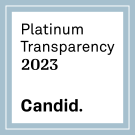Faith-Based Organizations + Affordable Housing
“Building a future of freedom requires love of the common good and cooperation in a spirit of subsidiarity” – Pope Francis
We all come to the table with a shared vision of everyone in our community living with dignity in a safe, healthy, and affordable home. We come to the table with different motivations, resources, and understandings and that is where true partnership in this work can occur. Faith-based organizations and communities have often been pivotal players in social justice movements, providing care to the most vulnerable populations, and working alongside advocates.
Below are resources for understanding the successes of these partnerships, how they work, and how your organization can begin the process of working together to achieve our shared vision.
Our Membership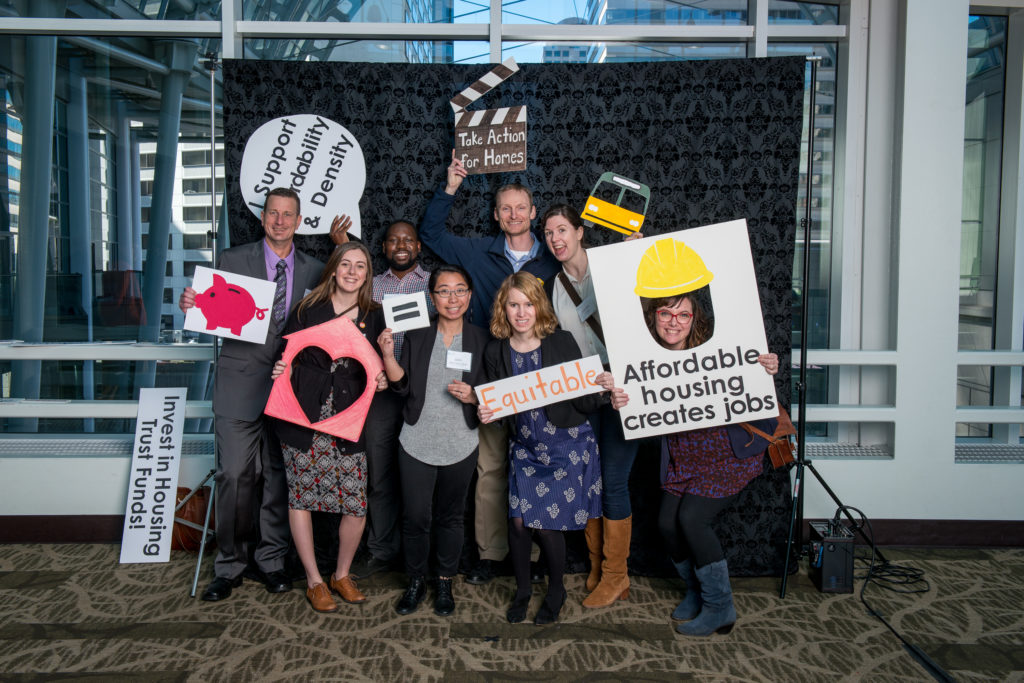
Many HDC members began their organizations within the church. This connection and shared values helps ground our partnerships and collaborations.
- Catholic Community Services & Housing Services
- Compass Housing Alliance
- Congregations for Homelessness
- DESC
- Imagine Housing
- Mercy Housing Northwest
- Plymouth Housing
- Sophia Way
Local Examples
Bellwether Housing’s Arbora Courts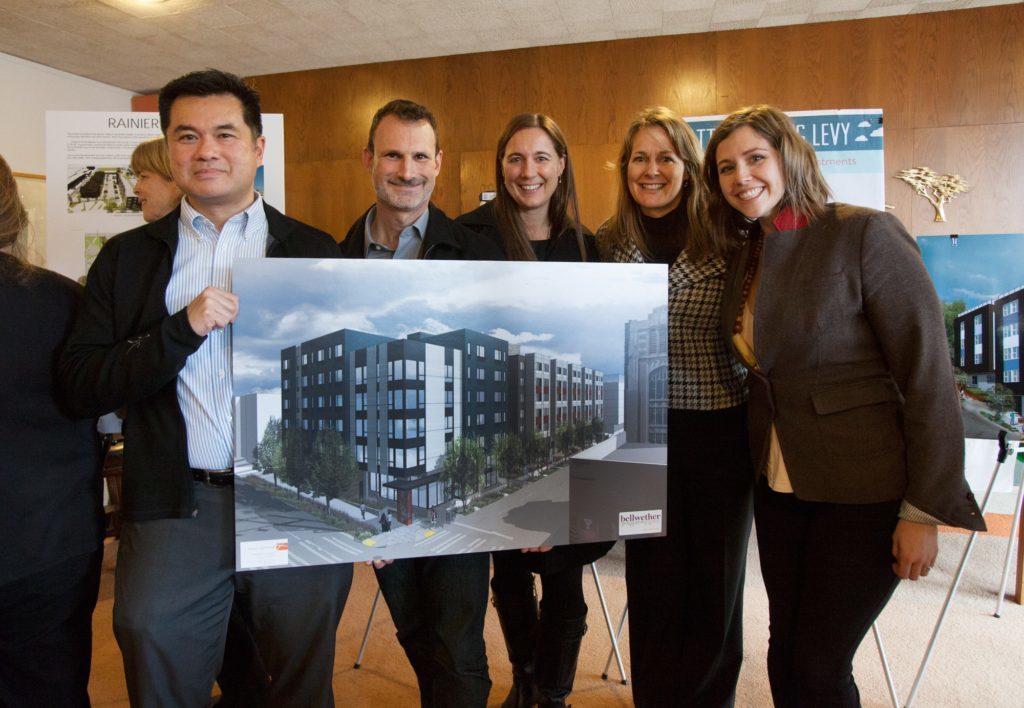
Arbora Court serves low-income families in Seattle’s University District. Built on land that was once a church parking lot, University Christian Church generously sold the land to Bellwether at below market value to fulfill their vision and create affordable housing. Now 133 families call Arbora Court Home. Forty apartments are designated for families transitioning out of homelessness. Onsite services, a community room, and playground support residents and foster community. Stable housing at Arbora Court enables residents to focus on health, school, and work. Located near transit, some of Seattle’s top-performing public schools, a world-class public university, and abundant community resources, Arbora Court puts opportunity within reach of its residents.
Compass Housing Alliance’s 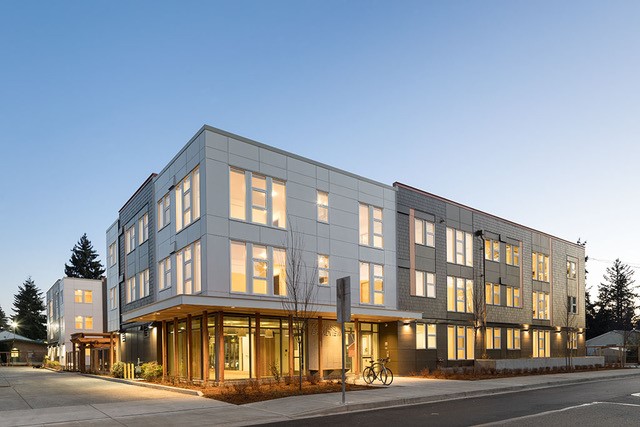
Compass Broadview
Compass Broadview is a permanent, affordable housing community of Compass Housing Alliance to be located on a parcel purchased from Luther Memorial Evangelical Lutheran Church. Compass Broadview aims to provide high quality stable affordable housing to low-income Seattle residents and connect homeless families and disabled households with opportunities to build a safe and prosperous community for us all.
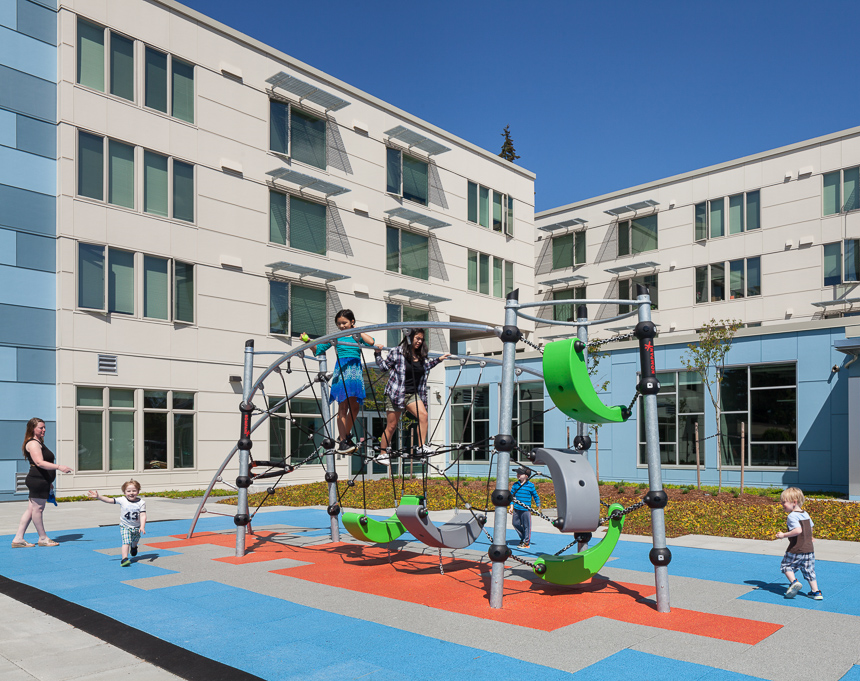 Compass Housing Alliance’s
Compass Housing Alliance’s
Ronald Commons
Located in Shoreline, Ronald Commons is a mixed-use development with 60 affordable housing units. It is complemented by a 12,000 square feet HopeLink Integrated Service Center and food bank. The Integrated Service Center includes a food bank, family services, and financial education and assistance for low-income households. An internal courtyard, play area, and walking path create an integrated connection between the three program facilities.
Imagine Housing’s 30Bellevue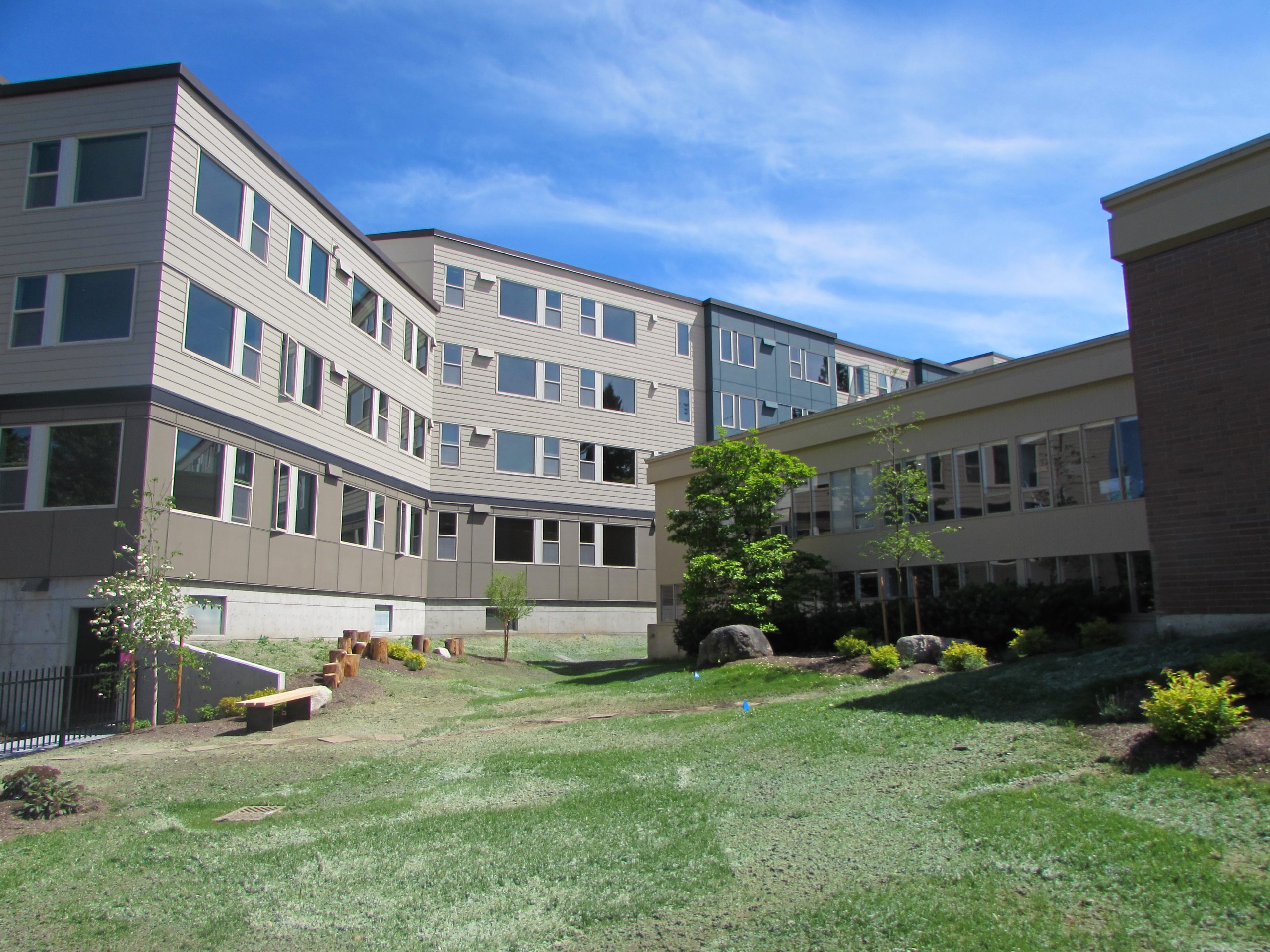
In partnership with St. Luke Lutheran Church, 30Bellevue has 63 total affordable apartments ranging from studio to 3-bedrooms, more than half of which directly serve currently homeless households in partnership with King County. Located in the North Towne neighborhood of Bellevue, 30Bellevue community consists of those earning between 30% and 80% of area median income, with easy access to public transit, wireless internet in common areas and is built to achieve Washington State Evergreen standards for energy efficiency.
 Enterprise Community Partners’ Faith-Based
Enterprise Community Partners’ Faith-Based
Development Initiative
More than just providing capital, Enterprise provides training, technical assistance, and more. Enterprise works with organizations to provide the equity needed to make this work feasible. Learn more here.
Legislative Resources
HB 1377
This bill works as an incentive to build affordable housing on faith community-owned land. Faith communities who choose to use their land to create homes for their low and middle-income neighbors making below 80% AMI receive a density bonus for the development.
A density bonus is a zoning tool that allows a developer to build higher, more units, or with more floor space than normally permitted in that area. Density bonuses are a valuable tool in that they allow for more homes created which can makes it easier for affordable projects to pencil (to work out financially). 1377 also stipulates that building must remain affordable for 50 years. This density bonus is available in any municipality that is planning under the Growth Management Act (GMA).
Learn more about the bill & what it means for King County here!
Check out the city of Seattle’s work to adopt HB1377 locally here!

